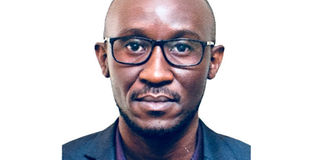Prime
Everyday corruption by everyday citizens

Kaboggoza Kibudde
What you need to know:
- That despite our remonstrations, most Ugandans love and practice corruption. It’s just that we underestimate our culpability while overestimating that of our leaders.
Previously, I posited that Uganda’s fight against corruption is pretentious, both at government and individual levels.
That despite our remonstrations, most Ugandans love and practice corruption. It’s just that we underestimate our culpability while overestimating that of our leaders.
Sadly, some readers mistook that to mean I condone corruption or that corruption doesn’t vary in severity. However, the intended message was - to genuinely fight corruption, we (everyday Ugandans, not just leaders), must reach a point where we feel genuine moral disgust towards it, starting with our individual lives.
Looking for sinners before cleansing ourselves does us little good.
In that article, I also alluded to a past incident with traffic police, the exact nature of which requires no elucidation. It’s a common Ugandan experience that Bobi Wine ably captured in his song Kiwani.
In our case, we had travelled with some non-Ugandan guests. After we (the Ugandans) successfully reached an ‘out-of-court settlement’ with the police, we returned to the car in a triumphant mood, only for our foreign compatriots to greet us with disapproving stares.
To them, we were as guilty of corruption as the ‘corrupt police.’ In contrast, fellow Ugandans saw no guilt on our part, and therein lies the problem.
Since every society has fewer leaders and police than everyday citizens, laws can only be easily enforced when there is buy-in from the general population. The reason we don’t respect Zebra crossings in Uganda, for instance, has little to do with lacking traffic laws or police officers. It’s mainly because most of us do not buy into the concept of zebra crossings.
However, when we go to countries where the majority respect zebra crossings, we fall in line, demonstrating the need for majority buy-in for any law to be enforced widely. In such cases, citizens police themselves.
So, to genuinely fight corruption in Uganda, the majority must develop a moral repulsion for corruption irrespective of who the perpetrator is. Here, passengers would also be outraged at a driver who attempts to bribe their way out of a traffic offence.
Currently, we only despise the corrupt officer, not the similarly corrupt driver. As citizens, we believe corruption is understandable or forgivable when we practice it and is only bad when leaders (or police) do it.
This kind of mindset renders our fight against corruption impotent. To succeed, we must also demonstrate the message we have for our leaders in our individual lives.
Those who say we shouldn’t equate individual action to State action have a point; however, they should also recognise that the entire system is linked.
For one, an individual who bribes an officer instead of paying the stipulated fine robs the State of that amount, which could fund public health care and save the lives of the less fortunate. So, by paying the bribe, they, too, have effectively stolen public funds.
Now, imagine the scale of this ‘theft of public funds by private individuals’ when most individuals replicate such behaviour in virtually every sector!
Second, the minority who become leaders (or police officers) come from everyday homes and communities. If we excuse corruption in our individual lives and homes, we create corrupt communities that produce corrupt leaders, workers, and clients, both in the public and private sectors.
Often, we disregard corruption in the private sector and downplay the role private citizens play. But ever wonder why it is currently ill-advised to operate self-check-out supermarkets in Uganda? Or why you struggle to find honest builders or car mechanics? It’s not because of corrupt leaders.
Mr Kibudde is a socio-political thinker
[email protected] Twitter: @kkaboggoza




